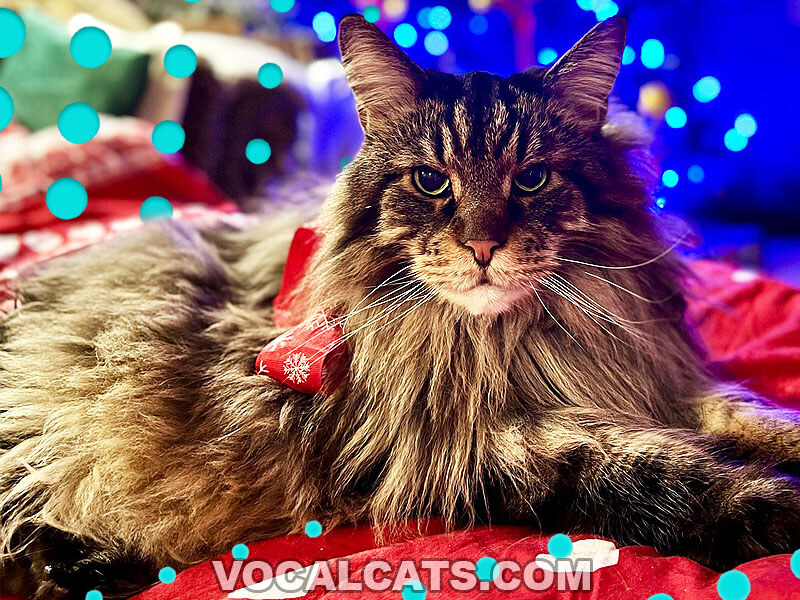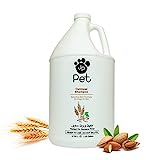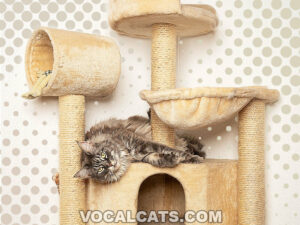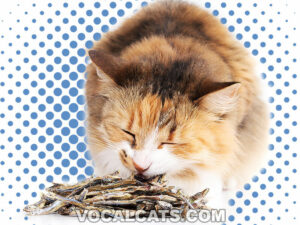Are Maine Coons Hypoallergenic? No, Maine Coons are not Hypoallergenic. They can shed year-round or seasonally, though not as much as other long-haired breeds. They also tend to produce less of the Fel d 1 protein, which experts state is the primary cause of cat allergies. But this still doesn’t make them 100% Hypoallergenic.
Nothing is quite as heartbreaking as being unable to get the feline of your dreams due to the fear of allergies. If you’re a Maine Coon fan looking for viable advice about the breed’s Hypoallergenic claims, you’re in the right place.
This article will focus on Maine Coon Shedding, allergy symptoms, non-allergenic cat breeds, and more. All you need to do is find a comfy chair and stick with us as we break down whether Maine Cats are truly Hypoallergenic or not.
Contents
- Are Maine Coon Cats Hypoallergenic?
- What does Hypoallergenic Cat mean?
- So, Is a Maine Coon Hypoallergenic?
- What Causes Cat Allergies?
- How common are cat Allergies?
- What are the symptoms of cat allergies?
- Can a Maine Coon cause asthma?
- How to check if you are Allergic to Maine Coons?
- How long do Cat Allergies last?
- So, are Maine Coons bad for allergies?
- How to reduce Maine Coon cat allergies in the home?
- What is the most Hypoallergenic Cat?
- Cat Breeds that are Hypoallergenic
- What Cat is 100% Hypoallergenic?
- So, Is Maine Coon Hypoallergenic?
- Related Questions
Are Maine Coon Cats Hypoallergenic?

Finding a Hypoallergenic breed can be challenging if you’re a cat lover with allergies. Feline enthusiasts often suggest Maine Coons as a good option for allergy sufferers. But is this claim really valid?
Coon Cats are considered non allergenic due to their reputation as a low-shedding breed. However, despite this, Maine Coons are not truly Hypoallergenic.
Experts suggest cat allergies are caused by a protein called Fel d 1 (present in a cat’s saliva, skin, and urine). While Maine Cats produce less of this protein than some felines, they can still cause allergic reactions. That’s because Maine Cats can still shed dander, another known allergen.
Some people may find that they tolerate specific cats better, regardless of breed, so it may be worth spending time with a Maine Coon before adopting one. It’s possible you may be immune to Maine Coon allergies.
Allergies can be complex, and what triggers a reaction in one person may not necessarily affect another. Therefore, while Maine Coons may be a better choice for some allergy sufferers, they are not a guaranteed solution to cat allergies.
DON’T MISS: How To Keep Cats Away From Blinds?
What does Hypoallergenic Cat mean?
Hypoallergenic cats produce fewer allergens, making them a potential option for people with cat allergies. However, readers should note that the concept of an all-powerful, completely non-allergenic feline is a myth.
All Cats produce allergens, but some breeds may produce lower levels of allergens or have other characteristics that make them more tolerable for the allergy-prone.
The idea of Hypoallergenic Cats centers on the fact that cat allergies are typically caused by a protein called Fel d 1. This protein is present in a feline’s saliva, urine, and skin.
Some breeds are said to produce less of this protein than others, making them less likely to cause allergic reactions. Other felines may have coats that don’t shed as much, which can also reduce environmental allergens.
So, Is a Maine Coon Hypoallergenic?
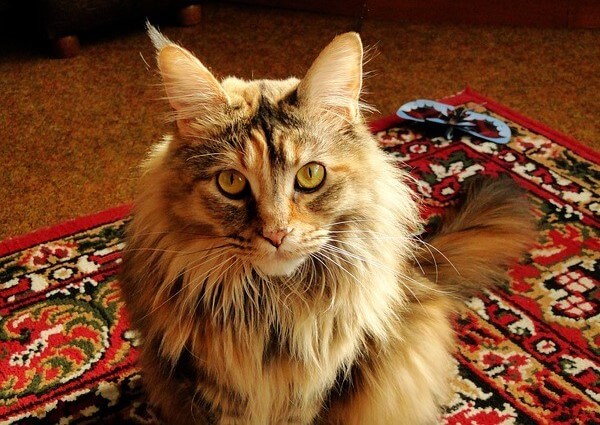
Now that you know the logic behind Hypoallergenic Cats, we bet you’re wondering, ‘Is a Maine Coon Hypoallergenic?’ To answer your question, Maine Coons are more non-allergenic than some felines, but as we stated earlier, they’re certainly not wholly Hypoallergenic.
You see, when it comes to Maine Cats and Hypoallergenicity, there are several factors cat parents should remember.
First off, Maine Cats are unique in that they don’t shed alike. If you live in a warmer climate, you can expect your feline to experience year-round sheds. But the good news is Maine Coons don’t develop heavy coats in such temperatures.
On the flip side, if you live in cooler climates, your fur baby will sport a fluffier coat and experience moderate and sometimes heavy shedding during the spring and autumn months. Besides that, your cat’s shedding intensity can also be affected by underlying health conditions and diet.
Second, Maine cat lovers should note that this breed may not trigger your allergies, despite the shedding, because they don’t produce as much of the Fel d 1 protein.
So, the only way to be absolutely sure about whether Maine Coons will trigger your allergic reactions is to spend time with one before you consider adoption.
Finally, prospective cat parents should know they can control their fur baby’s shedding intensity by tweaking his or her care routine.
How so? Here’s how:
- By giving your feline a healthy diet with no fillers.
- Having a regular grooming routine.
- Using technology like HEPA air filters and vacuum cleaners specializing in picking up pet dander.
What Causes Cat Allergies?
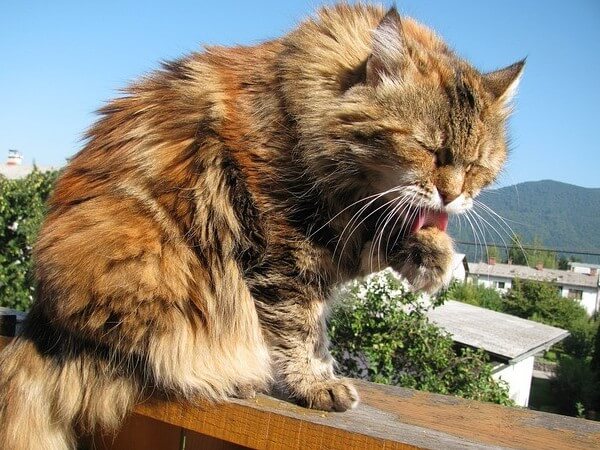
Most cat allergies are caused by a protein called Fel d 1, found in a cat’s saliva, urine, and skin. When a cat grooms itself, the protein is released into the environment as small particles known as allergens.
These allergens then become airborne and settle on surfaces throughout the home, including furniture, carpets, and drapes.
So when an allergic person comes into contact with these allergens, their immune system treats them as harmful invaders. The immune system then triggers sneezing, runny nose, and itchy eyes to try and expel these allergens.
However, allergies are incredibly complicated because at least seven other cat allergens (proteins) can also trigger allergic reactions in humans. These are labeled Fel d 2 to 8.
Fel d 2 comes from a family of globular proteins and is a minor cat allergen. Patients with respiratory allergies are generally sensitive to Fel d 2, which causes symptoms like rhinitis, asthma, and dermatitis in young children.
Whereas Fel d 4 and 7 are lipocalin allergens that bind with IgE (allergy antibodies) at a pretty high frequency after Fel d 1.
Scroll below to understand the different frequencies at which these proteins bind with IgE; in other words, how problematic these proteins are when it comes to the allergy-sensitive.
| Cat Allergen Type | Allergic Sensitization Rate |
| Fel d 1 | 96% |
| Fel d 2 | 15-25% |
| Fel d 4 | 60% |
| Fel d 7 | 38-46% |
How common are cat Allergies?
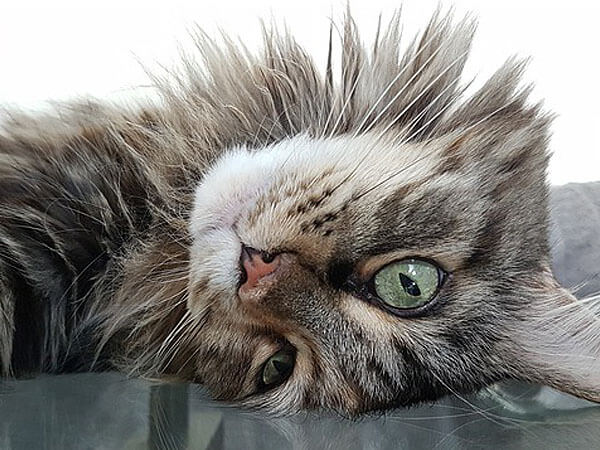
Cat allergies are a common phenomenon worldwide, with around 10 to 20% of the population being allergic to cats. An allergic reaction occurs when a person’s immune system reacts to an allergen, usually a protein found in an animal’s skin, saliva, or urine.
When these allergens enter your body, the immune system treats them as invaders and produces histamines to expel the foreign bodies from the system. That’s why allergies include symptoms like itching, runny eyes, watery eyes, coughing, and sneezing.
The prevalence of cat allergies can vary by region, age, and gender. Research shows that children may be more likely to develop cat allergies than adults. According to experts, approximately 15% to 30% of children with other allergies have allergic reactions to cats. In contrast, only 5% to 10% of adults generally have cat allergies.
Gender might also play a role in the development of cat allergies.
According to Quest Diagnostics Health Trends, their studies have shown that men can be more likely to experience an allergic reaction to cats than women. This might have something to do with hormonal differences between men and women.
It is worth noting that cat allergies are not limited to people who own cats. People can carry allergens on clothing or other objects and can be present in public spaces, such as schools or offices. That means people who don’t keep cats can still develop cat allergies.
What are the symptoms of cat allergies?
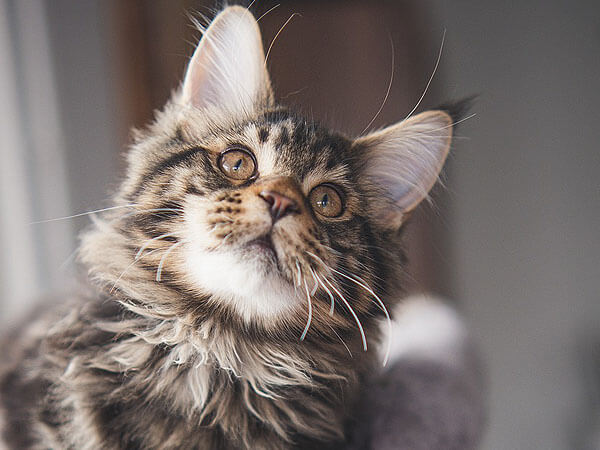
Cat allergies are common and can cause numerous symptoms that vary from person to person depending on the intensity of the allergy. Some people may start experiencing mild symptoms, while others may have severe reactions. Exposure to cats can cause an allergic reaction that includes:
- Sneezing: is one of the most common symptoms of cat allergies. This symptom can develop when your immune system reacts to the proteins found in cat dander, saliva, and urine. A runny or stuffy nose may also accompany sneezing.
- Runny or stuffy nose: Your nose may become congested or runny around cats. This can lead to difficulty breathing, especially if you already have asthma. A stuffy/runny nose may be a sign of an allergic reaction to cats, but it’s also associated with other health conditions like a cold or flu.
- Itchy or watery eyes: When exposed to cats, your eyes might become red, itchy, or watery. Such a reaction is due to your body’s histamine response to the cat allergens.
- Skin rash or hives: Some people may develop a rash or hives on their skin after contact with cats. This can indicate an allergic reaction that can manifest immediately or within hours of exposure.
- Itchy nose or throat: Your nose and throat may become itchy when you’re around felines. And it’s among the most common cat allergy symptoms and may occur along with other symptoms such as sneezing or runny nose.
- Coughing or wheezing: Some people may develop a cough or wheezing around cats, which can be a sign of asthma triggered by cat allergens. If you already have asthma, exposure to cats can worsen your condition.
- Chest tightness or shortness of breath: Cat allergies can cause tightness in the chest and shortness of breath in people with asthma. Such signs can indicate a severe allergic reaction and require immediate medical attention.
- Swelling of the lips, face, tongue, or throat: In rare cases, cat allergies can cause anaphylaxis, an intense allergic reaction that can be life-threatening. Swelling on the lips, tongue, face, or throat can indicate anaphylaxis and requires immediate medical attention.
It is important to note that allergies to cats can develop anytime, even if you have been around felines without problems. If you’re experiencing one or more Common Cat Allergy Symptoms highlighted above, you must talk to your doctor to determine if you have a cat allergy and discuss treatment options.
Cat allergies can sometimes trigger asthma symptoms, such as coughing, wheezing, and difficulty breathing. People with asthma and cat allergies are at an increased risk of having severe reactions to cats. It is crucial to manage both conditions to minimize the risk of complications.
If you or someone in your family has asthma or another respiratory condition, even the slightest change in your Maine Coon allergy level can prove dangerous. Be sure to consult your doctor before you think about adopting a pet.
Can a Maine Coon cause asthma?
Asthma is a serious respiratory concern that can be brought on by a range of features, including allergens such as pet dander. Pet dander consists of tiny particles of skin and hair that cats and other animals shed regularly. Some folks are highly allergic to pet dander and can experience asthma symptoms when exposed to it.
While there is no absolute answer to whether or not Maine Coons can cause asthma, there is evidence to imply that Maines may not be as likely to trigger asthma symptoms as other cat breeds. That’s because Maine Coons produce relatively less Fel d 1, the allergen most people are sensitive to.
However, it’s vital to consider that even if a cat breed is Hypoallergenic, it does not mean it won’t trigger asthma symptoms in all individuals. Every person’s immune system is unique, and what triggers asthma in one person may not activate it in another.
If you are thinking about getting a fluffy Maine cat and someone in your household has asthma or allergies, consult your doctor before bringing the cat into your home.
Your doctor can perform diagnostic allergy tests to determine if a Maine Coon or any other cat breed will likely trigger asthma symptoms in you or your family.
How to check if you are Allergic to Maine Coons?
If you suspect you’re suffering from a Maine Coon cat allergy, taking immediate action is a must. Here are some pro tips to help you check whether you’re allergic or suffering from a cold before you book an appointment with your doctor.
Pay attention to your symptoms
The most prevalent cat allergy symptoms include sneezing, runny or stuffy nose, itchy or watery eyes, and skin hives or rash. If you undergo any of the symptoms mentioned above after spending time with a Maine Coon, you may have an allergy.
Note your feline’s behavior
If your allergy symptoms worsen around a Maine Coon cat, it may be because they shed more hair or dander than other cat breeds. Additionally, if your fur baby likes to rub against you or sit in your lap, you may be more exposed to their allergens.
Visit a friend with a Maine Coon cat
If you don’t have a Maine Coon of your own, you can visit a friend who does and stay alert to how your body reacts. You may be allergic to the breed if you experience allergy symptoms after spending time in their home.
Try allergy medication
If you suspect you’re allergic to your Maine cat, try taking over-the-counter allergy medication such as antihistamines or nasal sprays. If your symptoms improve or disappear after taking the medication, it is a sign that you may have an allergy. However, we still recommend seeing an allergist for proper diagnosis and treatment.
Get Tested
You can visit a reputable allergist for tests (skin prick or blood) to determine if you have a Maine Coon allergy. These tests will expose you to a small amount of cat allergen and measure your body’s reaction.
How long do Cat Allergies last?
The duration of cat allergies can vary between individuals, depending on the intensity of the allergy and the individual’s immune system.
In some instances, the symptoms can go away within a few hours of exposure to cats, while in others, they may last for several days or even weeks.
It’s important to note that cat allergies are not always a one-time event. They can be chronic and go on for months or even years.
In some cases, people may develop a tolerance to cat allergens over time, while in others, the symptoms can become more severe with repeated exposure.
If you suspect a cat allergy, it’s essential to consult an allergist to select the best course of treatment and management.
So, are Maine Coons bad for allergies?
Here’s the thing. There’s no definite way to answer if Maine Coons are bad for allergies.
Yes, some individuals are allergic to the breed, but because the severity of an allergic reaction depends on your immune system, whether you’re allergic to a feline or how bad your allergy can get can’t be determined based on what-ifs.
The one thing we do know is that Maine Cats tend to produce less Fel d 1, which is the cat allergen most people are sensitive to. So, the only way to make sure you’re allergic to Maine Coons is to conduct an allergy test. Doing so will give you conclusive results.
How to reduce Maine Coon cat allergies in the home?
If you’re on the lookout for inventive ways to reduce Maine Coon cat allergies at home, we’ve got you covered. This section compiles fifteen creative ways to nip allergies in the bud so you and your fur baby continue leading happy and healthy lives. Here goes.
1. Keep your home clean by vacuuming regularly with a HEPA filter vacuum cleaner
That’s right. One of the best ways to reduce the chances of developing sneezes and watery eyes at the drop of a hat is to invest in a high-quality HEPA-filter vacuum cleaner to pick up potential allergens like pet hair, cat litter, and dander.
2. Wash your cat’s bedding and toys regularly with hot water and detergent
If your pet has left traces of saliva or urine on these objects, they become potential allergens. Keeping your feline’s toys and bed clean will help cut back on the chances of coming into contact with allergens.
3. Use air purifiers with HEPA filters to clean the air in your home
Air purifiers with HEPA-filters can suck up even the smallest of air particles. These include allergens like pet dander, dust, and mold.
4. Keep your cat off of furniture and out of bedrooms
We’re the most vulnerable to contact with allergens when asleep. Keeping your kitty cat clear of bedrooms is one of the best ways to avoid waking up with a stuffy or runny nose after sleeping.
RECOMMENDED: Why Does My Cat Sleep On My Pillow? 13 Reasons Why!
5. Bathe your cat regularly to reduce the amount of dander on its fur
When you bathe your fur baby, you do away with debris, traces of saliva, and other trouble-making allergens sticking to your cat’s fur.
However, be sure to use an organic cat-friendly shampoo and limit bath time to once a month to avoid giving your cat skin problems.
6. Groom your cat daily to remove loose fur and dander
Using a detangling and deshedding brush to groom your cat not only helps rid its coat of mattes but is also a sure-shot way of reducing pet dander. You can even try brushing your cat on the porch to keep his fur from floating around inside the house.
7. Use non-toxic, Hypoallergenic cleaning products
Hypoallergenic cleaning products are designed to do away with allergens before they have a chance to enter your system via the airways. Doing so will help you eliminate allergens from your home environment to quite a degree.
8. Avoid using carpets and use hardwood or tile floors instead
Getting rid of pet hair and dander from carpets is a task, and that’s a fact. Hardwood floors and tiles are much easier to keep clean and maintain.
9. Install allergen-reducing furnace filters
If you’re looking for ways to keep your whole house allergen-safe, relying on Hypoallergenic air filters can help big time.
10. Use a high-efficiency furnace filter
How to reduce Cat Allergies in the home? High-efficiency filters, that’s how. These filters are designed to catch particles measuring less than 0.3 microns. That includes viruses, bacteria, fumes, and, yes, pet dander!
11. Keep your home’s humidity levels low to prevent mold growth
Believe it or not, cat allergens aren’t your only worry when it comes to allergies. Things like mold and dust play just as big a role in fooling the immune system to release histamines. That’s why lowering humidity levels and warding off mold growth is undoubtedly a good idea.
12. Use dust mite covers on your bedding and furniture
The enzymes in dust mite shells and feces are also allergens. Using dust mite covers on your bedding and furniture will help safeguard your upholstery from such unwanted substances.
13. Keep your cat away from your face and avoid cuddling them
Allergens can only be problematic if they find their way into your system. That’s why keeping your nose and mouth away from your feline is a good idea.
READ NEXT: Why Does My Cat Sleep On My Head, Face and Neck? 10 Reasons Why!
14. Wash your hands frequently when handling your cat
Our hands are capable of carrying germs and allergens, which is why washing your hands can reduce transferring allergens from one place to another.
15. Consider taking allergy medication or allergy shots to reduce your symptoms
What Should I Do to Reduce Cat Allergies? Think about getting allergy shots to manage symptoms. Not all allergy medication is problematic in terms of sleepiness and side effects. Consult your doctor for the best solution to your allergy problem.
What is the most Hypoallergenic Cat?
While there’s debate on which feline is the most Hypoallergenic, experts agree that Sphynx is the safest breed for allergy sufferers. Why? That’s simple. Sphynx cats don’t have any fur to shed, as they generally have a light fuzz on their bodies.
Cat Breeds that are Hypoallergenic
If you are slightly allergic to cats but still want to own a feline friend, some breeds are more Hypoallergenic than others. Here are five cat breeds that are known to cause fewer allergy symptoms:
- Russian Blue: This breed produces less Fel d 1 protein than others, so they’re undoubtedly a good option for allergy sufferers. They also have short, dense fur that requires minimal grooming.
- Bengal: Bengals have a unique pelt that is Hypoallergenic. They’re not big Fel d 1 producers and have less dander than other breeds, making them great for people with allergies.
- Devon Rex: These cats have curly fur that sheds very little, producing less dander. They are known to cause fewer allergy symptoms than other breeds.
- Cornish Rex: Like the Devon Rex, these cats also have curly coats that shed very little.
- Siberian: Despite their long fur, Siberian cats produce little amounts of the Fel d 1 allergen. They also have a thick undercoat that helps to keep dander from spreading around your home. So what happens if you cross a Siberian cat with a Maine Coon? Will the resulting offspring be hypoallergenic? Check out our article on Siberian Maine Coon Mix to find out!
READ ALSO: Russian Blue Maine Coon Mix (Complete Guide) and Maine Coon Bengal Mix (Complete Guide)
What Cat is 100% Hypoallergenic?
Unfortunately, no cat is 100% Hypoallergenic. Remember, recognized cat allergens (labeled Fel d 1 to 8) are present in fur, saliva, and urine. That means even felines with little to no fur to shed can still potentially trigger allergies.
So, Is Maine Coon Hypoallergenic?
We’re hoping all your thoughts relating to Maine Coon allergies have been addressed. Maine Cats are excellent pets, and they have much to recommend them.
Still, the only way prospective cat parents can be sure their feline won’t trigger any allergies is by having themselves tested or spending time with a Maine Coon before adopting one.
Not to mention, since pet dander and other allergens are airborne, there’s no way of being 100% sure, your allergy woes are because of your feline and not some other pet in the neighborhood.
Related Questions
Maine Cats are gentle giants and are pretty forgiving as far as their care routine goes. However, these double-coated felines require a set grooming schedule to ensure good health and looks.
Perhaps one of the few drawbacks of keeping Maine Coons is their grooming needs and space requirements. Maine Cats grow to be quite large and need plenty of legroom.
Maine Coons are pretty robust and hardy by nature. While they don’t fall ill very easily, they are still prone to health conditions like obesity and hip dysplasia.
DISCLAIMER: THIS WEBSITE DOES NOT PROVIDE MEDICAL ADVICE
The information, including but not limited to, text, graphics, images and other material contained on this website are for informational purposes only. No material on this site is intended to be a substitute for professional veterinary advice, diagnosis, or treatment. Always seek the advice of your veterinarian or other qualified health care provider with any questions you may have regarding a medical condition.
https://en.wikipedia.org/wiki/Maine_Coon

With over five years of specialized experience as an animal writer, my expertise lies in cat nutrition, health, behavior, grooming, and training. I am dedicated to delivering helpful and informative content that caters to the well-being of our feline friends. My primary goal is to empower pet owners with knowledge and ensure our feline companions thrive in health and happiness. In my free time, I love volunteering at local cat rescue centers.
